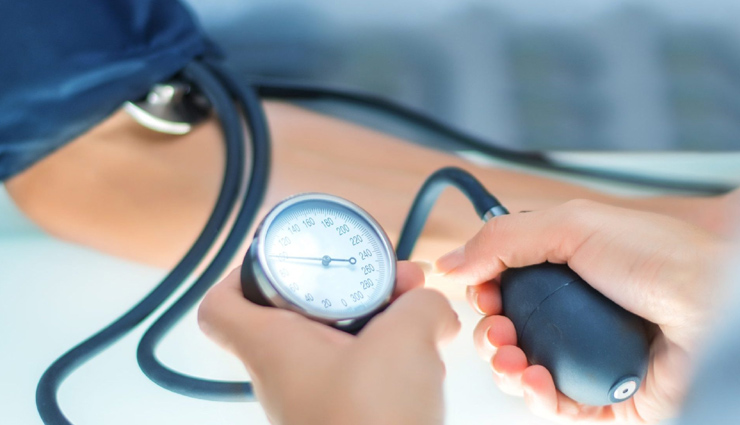- Home›
- Healthy Living›
- 8 Foods That Helps To Lower High Blood Pressure
8 Foods That Helps To Lower High Blood Pressure
By: Priyanka Maheshwari Tue, 07 July 2020 5:33:00

High blood pressure, also known as hypertension, is a major risk factor for both heart attacks and strokes. A blood pressure reading of 140/90 mm Hg or above is considered high blood pressure. In most cases, it does not cause any noticeable symptoms and is thus called the “silent killer”.
According to the Centers for Disease Control and Prevention (CDC), hypertension affects one in three adults in the United States.
Many factors contribute to high blood pressure, including age, genetics, stress, obesity, a sedentary lifestyle, alcohol consumption, smoking, and excess salt intake.
By managing and controlling the risk factor, you can keep your blood pressure in check. Also, eat a healthy diet rich in several antioxidant-rich foods and low in saturated fats to help control the problem.
In addition, be sure to take your blood pressure medication as directed by your doctor and regularly monitor your blood pressure.

* Lemons
Lemon, a popular citrus fruit, can help regulate high BP. Its antioxidant vitamin C helps neutralize the harmful effects of free radicals.
This in turn helps lower high blood pressure, reduces high cholesterol and improves overall heart health. In addition, lemons are high in potassium that helps lower blood pressure by reducing the effects of sodium.

* Garlic
Garlic offers blood pressure lowering benefits. It helps relax blood vessels by stimulating the production of nitric oxide, which in turn lowers blood pressure, especially systolic blood pressure.
A 2008 study published in the journal BMC Cardiovascular Disorders suggests that garlic preparations are superior to placebo in reducing blood pressure in individuals with hypertension.

* Bananas
Eat 1- 2 bananas a day to lower blood pressure. The high potassium content of banana helps to lessen the effect of sodium, which in turn regulates blood pressure. In fact, regular intake of potassium-rich foods can reduce your risk of stroke and prevent heart disease.
According to the Harvard Medical School, potassium helps lower blood pressure by relaxing the walls of the blood vessels. People suffering from kidney problems, however, should be cautious when increasing their intake of potassium as it may do them more harm than good.

* Olive Oil
Extra-virgin olive oil contains antioxidants called ‘polyphenols’, which help in reducing high blood pressure and even protect LDL (“bad”) cholesterol from oxidation. In addition, olive oil contains monounsaturated fatty acids that help improve heart health.
According to a 2000 study published in the Archives of Internal Medicine, use of extra-virgin olive oil can lower the daily antihypertensive drug dosage requirement.

* Tomatoes
Tomatoes contain lycopene and other carotenoids with antioxidant effects that help fight free radicals, lower the risk of heart disease, and reduce high blood pressure. In a 2011 study published in the journal Maturitas lycopene showed a significant systolic blood pressure reducing effect.
Also, a 2006 study published in the American Heart Journal, found that regular consumption of 250mg of tomato extract helped decrease both systolic and diastolic blood pressure.

* Blueberries
Blueberries are rich in flavonoids called anthocyanins that help prevent hypertension. In addition, the antioxidants in these berries help improve and maintain artery flexibility and thus help control blood pressure.
According to a 2011 study published in the journal American Society for Nutrition, anthocyanins help in controlling as well as preventing hypertension in adults.

* Beets
According to a 2010 study by researchers at the Queen Mary University of London, the nitrate content of beetroot juice helps in lowering blood pressure.
The nitrates in beetroot are converted into nitrites and then into a gas called nitric oxide, which helps widen the arteries and lower blood pressure. It can even reduce the risk of stroke, heart attack and other cardiovascular problems.

* Spinach
The folate, nitrate, potassium, magnesium and antioxidants in spinach help lower high blood pressure.
A 2013 study published in the journal of the Nitric Oxide Society suggests that nitrate-rich vegetables like spinach can lower systolic blood pressure and pulse pressure. They can even improve cardiovascular health in healthy men and women.





